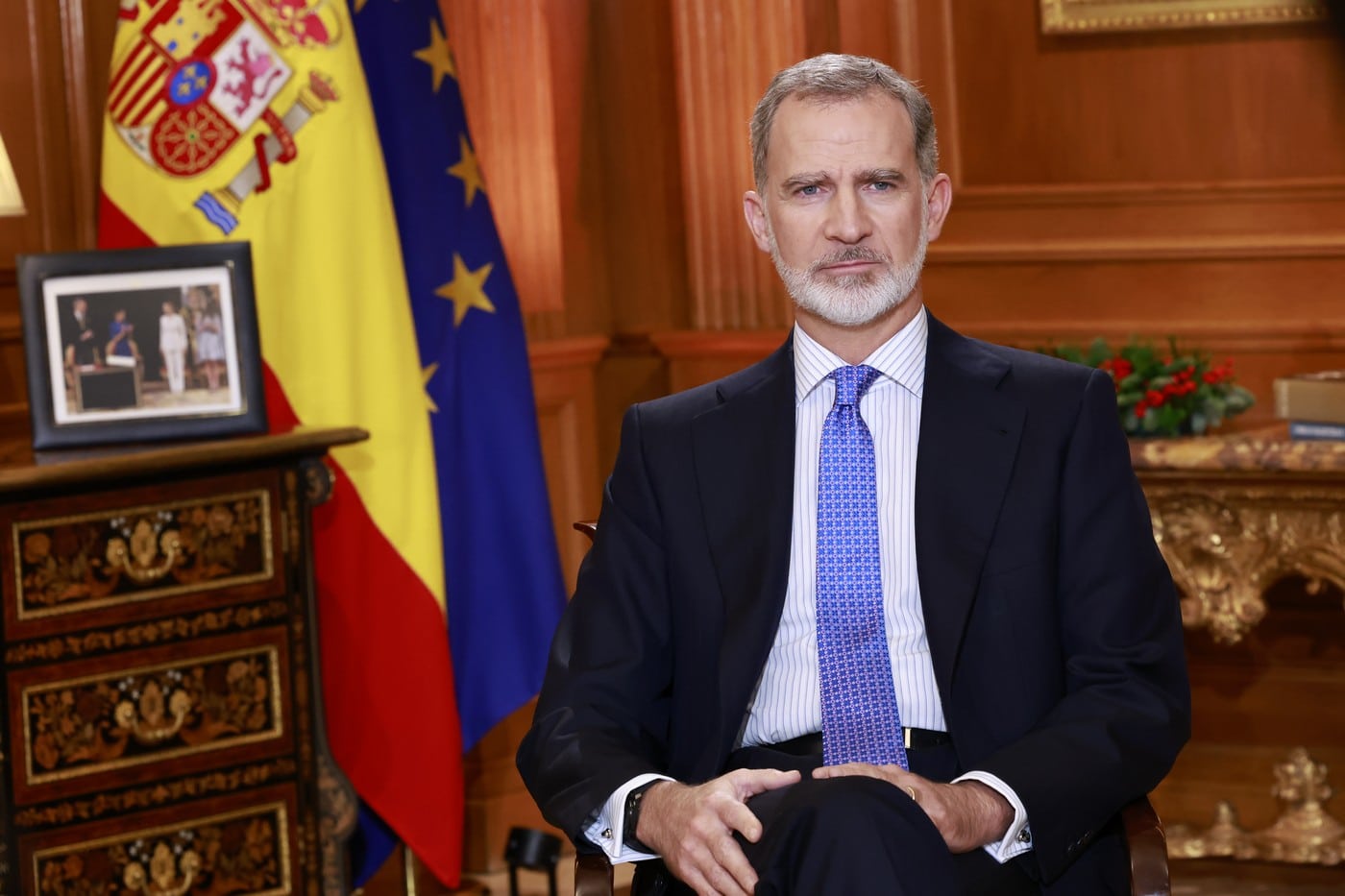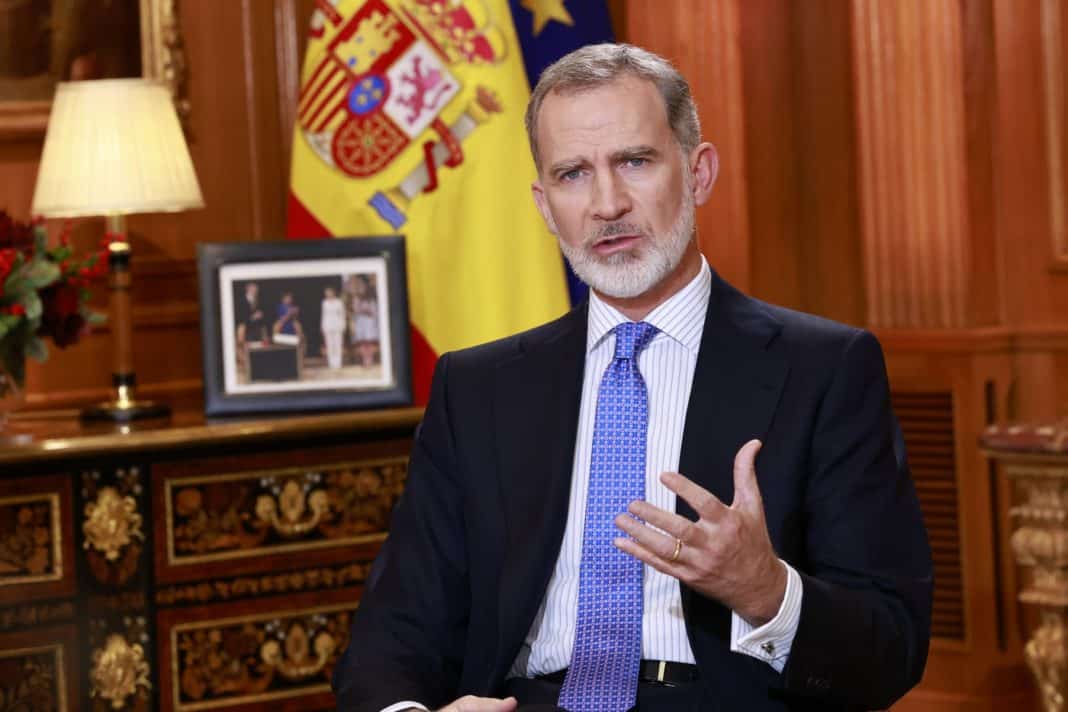- The king’s recorded message, broadcast on Christmas eve, comes just a month after a similar speech he delivered in the Congress chamber on the occasion of the solemn opening of the new parliament.
It is common that in his Christmas message, the most personal speech of the entire year, King Felipe VI talks about the problems and challenges of the people: unemployment, the difficulty of young people in accessing housing, sexist violence, health, education… This time, however, he spent only a short time covering these issues while focusing the majority of his speech on the Constitution and the unity of Spain.
He began by conveying his very best wishes along with those of his family. “It is a tradition that I like to maintain and that also allows me to take into your homes some reflections on our present and on the challenges that we face as a country.”
At the end of an electoral year, he spoke of the agreements between the PP and Vox during the summer, in municipal and city councils, and the agreement of the PSOE with Sumar, the independence and nationalist parties, leading to the investiture of Pedro Sánchez just a few weeks ago, in a speech that was essentially political.
The King doesn’t mention either the amnesty law that Sánchez has negotiated with Junts and ERC, nor the demonstrations of the PP and the extreme right (in some of which slogans against the monarchy were chanted), but he does warn of the risks of division and places the Magna Carta of 1978 as the best tool to guarantee “certainty.”
“Thanks to the Constitution we managed to overcome the division, which has been the cause of many problems during our history; that opened wounds, fractured affections and distanced people. Overcoming this division, therefore, was our main success almost five decades ago. Therefore, preventing the germ of discord from ever re-establishing itself among us is a moral duty that we all have, because we can’t afford it,” he warned.
Neither did Felipe VI mention the wars in Ukraine and Gaza, talking for the most part about the 45 years of the Constitution, which his successor, his daughter Leonor, the Princess of Asturias, swore to on 31 October. The head of state sees the Magna Carta as the main tool to guarantee the “way of living and understanding life” that Spaniards have enjoyed since the late 70s. Outside of “respect for the Constitution,” he states, “there is no law but uncertainty.” “Outside the Constitution there is no Spain in peace and freedom,” he said.
The king highlighted the solidarity between the Autonomous Communities as a driving force for success and progress emphasising that the Magna Carta represents the guarantee of political diversity and “a shared vision of Spain”, which recognises everyone “the right to be respected in their own personality and culture; with their languages, traditions and institutions.”
Neither did the king mention the 2017 independence referendum but following the two recent successes (pandemic and fight against ETA) he said that in Spain “constitutional values” have been defended when they have been “in question or have been put at risk.”
In the historic speech that the Monarch made on October 3, 2017, two days after the independence referendum, he asked the State to ensure the “constitutional order and the normal functioning of the institutions” in the face of the “inadmissible” disloyalty of Carles Puigdemont. The amnesty law, however, will ensure that, among other people, the ‘expresident’ benefits from the amnesty.
In this Christmas speech he also talks about institutions. He asks that they show each other respect “in the exercise of their own powers” to “contribute mutually to their strengthening and prestige.”
The Monarch says that the “ultimate reason” for the “successes and progress” of recent history has been “unity”, “democratic values, “cohesion” and the “solid links of the State” with the autonomies and the “ solidarity between all of them.” And it is in this context that he makes the only reference to the fact that Spain has held the rotating presidency of the European Union this semester, stating that in these months “the unity of Europe has been reinforced.”
The speech, which lasts almost 12 minutes, was recorded in the Zarzuela Audience Hall. In the background on a chest of drawers, you can see a photograph of the King, together with Queen Leticia and Infanta Sofía, applauding Princess Leonor on the day she swore the Constitution before the Cortes Generales.




















